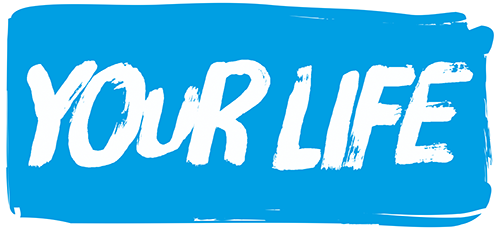(SPONSORED ARTICLE) The world of work moves fast - here’s how to help your students keep up

The days of one-off work experience placements with pupils making the tea and doing the photocopying are gone - or should be. What matters now is sustained engagement with the world of work.
Café culture
Building links with industry may seem daunting but schools can do a great deal in this area, especially if they make good use of the connections they already have. Some, for example, have set up a series of informal Stem (science, technology, engineering and maths) talks under the Café Scientifique banner.
This is an initiative whereby anyone, for the price of a coffee, can come to have a conversation about the latest ideas in science and technology. Schools have been able to set up events of their own by drawing on the expertise of parents, alumni and the relatives or friends of teachers.
Our Café Scientifique group meets in a coffee bar but others congregate in bookshops or theatres. What matters is having a relaxed setting where industry representatives can enthuse and inform, and where students feel able to ask questions. Events like these can add an extra dimension to the work that goes on in the classroom, although they should not be entirely separate from it.
Real-life examples
There is also a good argument for having a lesson on possible career options at key moments in the student journey, for example in Years 9, 11 and 12. In one such lesson at my school, a chemistry teacher showed his students that chemists could go on to become not only geochemists or pharmaceutical chemists but also fireworks designers, patent lawyers or financiers. Cosmetic chemistry was another option, but they already knew this because of the highly popular chemistry cosmetics club that he runs after school.
There are many opportunities to show students how employable Stem qualifications can make you. One approach is to invite speakers who have pursued myth-busting careers. For example, some of our pupils were surprised to discover that a recent speaker at one of our Café Scientifique events - a digital producer for the BBC - had a degree in natural sciences and a PhD in biochemistry.
Even if speakers have not pursued Stem careers, you could encourage them to talk about their scientific education. A throwaway comment from a law lecturer about her three science A-levels also made a big impact on our students recently. Busting myths is difficult but, over time, stories like these from real people in real jobs can change pupils’ perceptions.
Breakfasts for champions
That is one reason why we created a series of networking breakfasts for our upper sixth students. We try to make the experience as pleasant as we can for the parents and alumni who are our guests, while also creating a golden opportunity for our students to network. Asking busy people to take time off work is tricky, but inviting them to a breakfast before work and laying on transport to the station afterwards is not.
Variations on this approach include Women in the Workplace breakfasts and events that follow the Dads4Daughters model.
The effect tends to be cumulative. One-off events don’t make much of an impact but by attending several students can develop a genuine understanding and appreciation of the world of work. At our school, we have also tweaked many of the traditional careers offerings to help them on their way. Our Careers Fair, for example, now also includes a series of half-hour workshops so that students get more than a snatched conversation at a busy stall.
Careers and technology
Technology can help, of course. Class Careers, for instance, offers online workshops and live chat with many different employers, removing the pressure to get students out of school during term time. Class Careers have also collaborated closely with the Your Life campaign to promote Stem. LinkedIn can also be very useful, not only for keeping in touch with recent alumni, but to show students where different degrees can take them.
However, it is true that students still need to get out of their schools and colleges and into the workplace, although practical difficulties can sometimes stand in the way. Fortunately, many organisations can help students (and the busy teachers who are responsible for them) with this.
Oxford University, for example, is currently trialling its Student Consultancy scheme. The idea is that pupils are trained in consulting and teamwork skills, which they go on to apply to a real problem in a real business. The scheme provides a great framework within which to work and the name certainly helps when approaching businesses. Most importantly, students must be professional; they must deliver on time; and they gain a huge amount of experience.
Other organisations provide valuable support in other ways. ULAS provides a free platform that connects students with employers and industry bodies while also enabling them to build their CVs. Through the platform, students can apply for courses, work experience and other placements.
Then there are Stem competitions, such as the various science Olympiads and the excellent scheme run by TeenTech. These competitions promote real and sustained engagement with Stem subjects, underpinned by the involvement of prominent organisations and employers.
Work hard to get work
So what about good old work experience? The first point to make is that employers are looking not so much for work experience as for the experience of work. It can be tempting to look down on Saturday jobs, but employers still value the sense of commitment, the people skills and the diligence developed by part-time jobs and long-term volunteering.
However, there is a place for work experience as well. What matters is not so much the sentence that ends up on the CV as the quality of the placement. To get that right, a lot of preparatory work is required, which is why we should avoid creating an artificial divide between in-school events and external programmes. Any links are to be welcomed. Any engagement can bear fruit. And if you’re struggling with the paperwork and potential legal pitfalls, organisations such as Spark! and Careers Plus can help.
Our students have plenty of chances and we have plenty of opportunities to help them. There may be a limit to what we can achieve in any one year but, with many organisations and employers so keen to engage our students, we will find that the chances come again and again.
Roy Peachey, head of higher education and careers at Woldingham School, Surrey
Your Life’s fully-funded Best School Trip sees groups of students visit exciting and dynamic companies to tackle the current UK Stem skills crisis. They are looking to engage with schools in Liverpool, Manchester, the Black Country, London, the North East and the Tees Valley. For more information click here, or email: info@yourlife.org.uk
